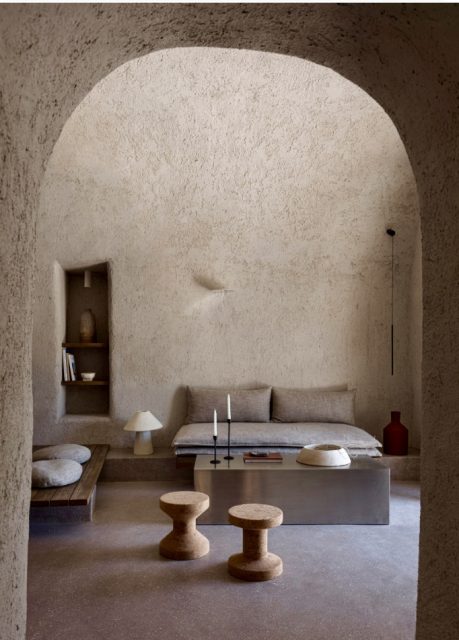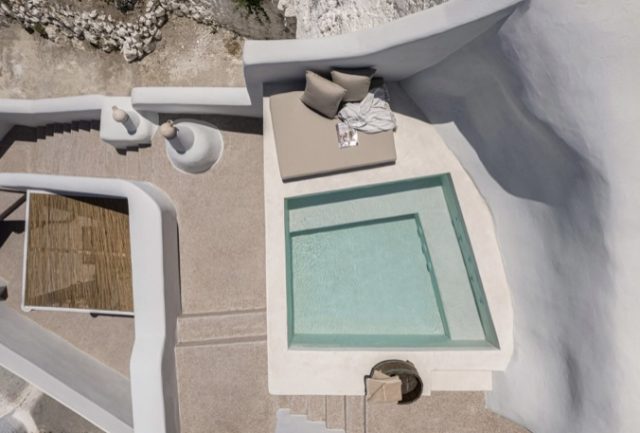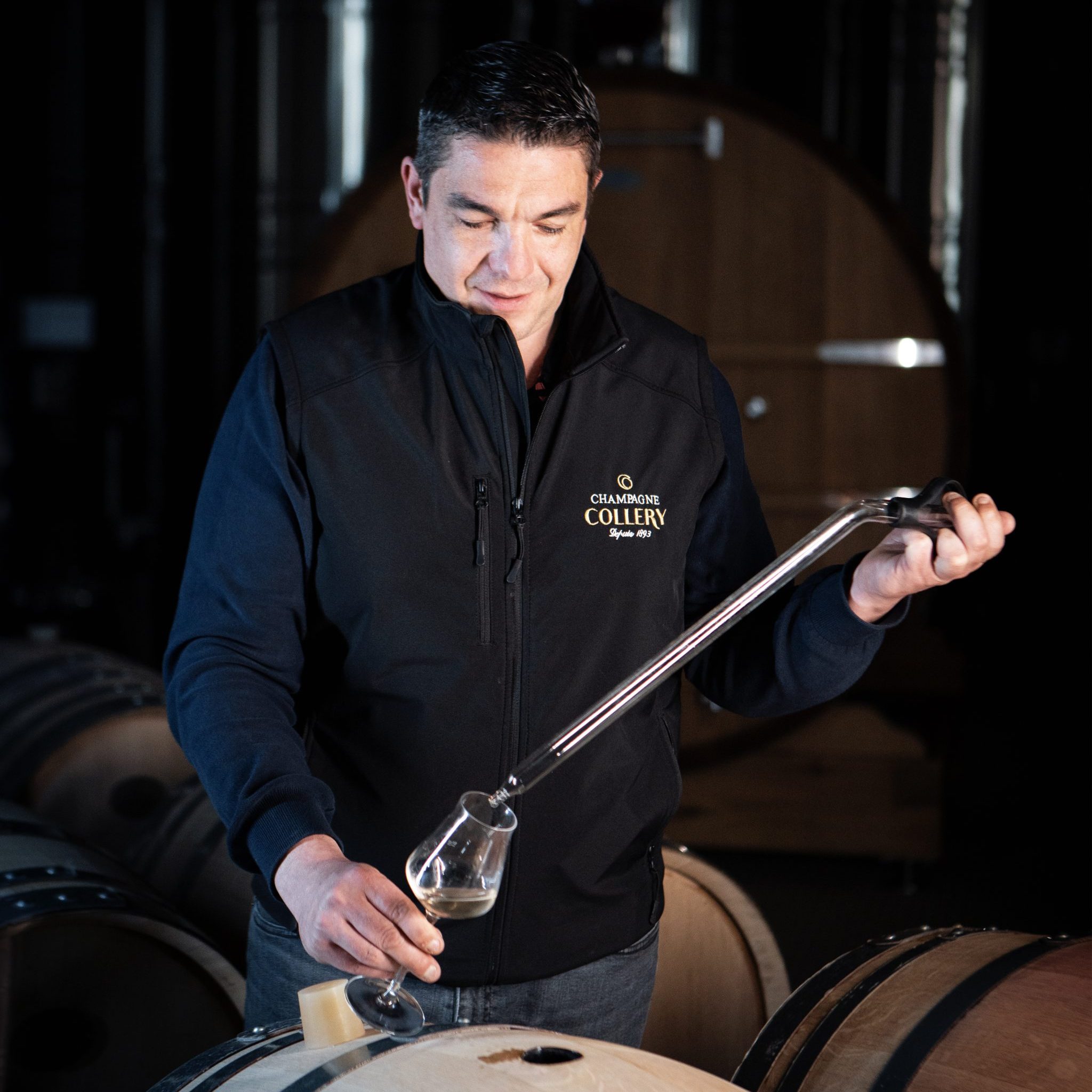19th century Greek wine cellar transformed into luxury home
By Sarah NeishA 200-year-old wine cellar chiselled into a hillside on the Greek island of Santorini has been given a second lease of life by Kapsimalis Architects.

Nestled into a steep hillside in the village of Mesaria on the edge of Santorini’s caldera are the fruits of a new project by local design studio Kapsimalis.
An abandoned wine cellar with its “subterranean vaulted spaces” and “old equipment” left in tact has been tastefully converted into a high-end holiday residence.
“The building was an old subterranean wine cellar or canava, common in this kind of rural settlement, which consisted of two interior vaulted spaces, a small exterior yard and a flat terrace on the top,” Alexandros Kapsimalis, co-founder of Kapsimalis Architects, told Dezeen.
According to Kapsimalis, the wine cellar’s “cavities, protrusions and imprints of the past” have all been preserved, with recesses in the walls now displaying a small selection of “exclusive fine local wines”.
The dwelling’s chimneys have been repurposed to provide ventilation for the property, and circular windows in the bedroom floor provide a glimpse into the remains of the original wine cellar.

Modern touches including a rooftop swimming pool, heated jacuzzi and sun deck have been added to bring a touch of luxury to the property, and free wifi is available throughout. Kanava Cave Winery Villa is currently listed on booking.com from £340 per night.
Partner Content
Winemaking past
In the 19th century, Mesaria was the industrial centre of Santorini, and the village is surrounded to this day by vineyards and olive groves. Canavas were usually occupied by small-scale winemakers, whose bottles benefitted from the cave’s naturally cool and damp interiors. Today, each remaining canava tells a story of Santorini’s ancient winemaking heritage, which can be traced back 3,500 years.
Santorini’s vines are famously cultivated using the “ambelia” or “kouloura” technique, whereby each vine is pruned to form a basket shape in order to protect plants from strong winds, and the sands carried on the breeze.
The finished wines are aged for a minimum of one year before being released to market, with some Santorini wines capable of ageing for up to a decade due to their minerality from the island’s volcanic soils.

It’s characteristics such as these that are increasingly winning over international consumers. In July, the drinks business reported a 277% year-on-year increase in the sales of Greek wines in the UK, for example.
“After 18 months of focused efforts in the UK market with 44 participating wineries, we’ve seen a remarkable increase in interest for Greek wine,” said Sofia Perpera, director of the Greek Wine Month campaign. “Greece’s treasure trove of indigenous grapes and diverse terroir is producing wines with a true sense of place – a key attribute for the UK market.”
According to data from Trend Economy, the total value of Greek wine exports has steadily increased, rising from US$100.2m in 2021, to US$104.2m the following year, and US$107.8m last year.
Related news
‘Priceless’ wines and spirits unearthed at Greece’s Tatoi Palace




